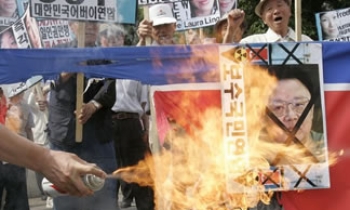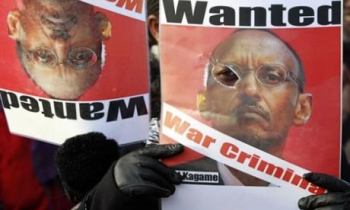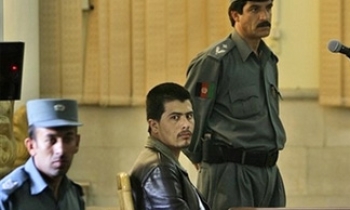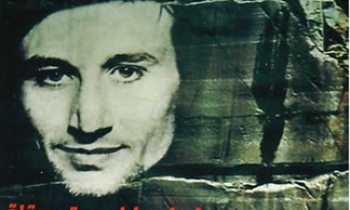A Lebanese broadcaster who lost a hand and a leg in an attempt on her life received an annual press freedom award from the United Nations on Wednesday, with the organisation warning journalists were increasingly at risk.

Television presenter May Chidiac received the award, named after a Colombian journalist assassinated in 1987 after denouncing drug barons, at UNESCO's annual World Press Freedom event held in the Sri Lankan capital, Colombo.
May Chidiac is a popular television presenter, whose news bulletins and Sunday programmes – Naharkoum Saïd and Bonjour – on LBC (Lebanese Broadcasting Corp.) are among the most widely followed in Lebanon. Chidiac's popularity owes as much to her professionalism as to her direct and open approach in a country traumatised by years of war.
The victim of a car bomb attack on September 25, 2005, Chidiac had one of her hands and her left leg amputated. The tragedy shook Lebanese opinion, which came to see the journalist as a symbol of freedom of expression. The attack against her closely resembled the fatal attack on Samir Kassir, a journalist from the daily An Nahar, five months earlier. Another similar attack in December 2005 targeted the editor of An-Nahar, Gebran Tueni. Chidiac was proposed as a candidate for prize by the Lebanese minister for culture.
The UNESCO/Guillermo Cano World Press Freedom Prize is awarded annually on World Press Freedom Day (3 May). The 2006 prize, worth US $25,000, is financed this year by the Guillermo Cano Foundation, James and David Ottaway – respectively a former reporter from the Washington Post and a former Chairperson of the World Press Freedom Committee (WPFC) – and UNESCO.
The jury members were Walid Al-Saqqaf (Yemen), Ruth de Aquino (Brazil), Conor Brady (Ireland), Kavi Chongkittavorn (Thailand), Kunda Dixit (Nepal), Joergen Ejboel (Denmark), Catherine Gicheru (Kenya), Daoud Kuttab (Jordan), Remzi Lani (Albania), Olena Prytula (Ukraine), John Thloloe (South Africa), Ricardo Uceda (Peru) and two representatives from the Guillermo Cano Foundation (Colombia).

Created in 1997 by UNESCO's Executive Board, the prize honours the work of an individual or an organisation defending or promoting freedom of expression anywhere in the world, especially if this action puts the individual's life at risk. The prize is named after Colombian journalist Guillermo Cano, who was assassinated in 1987 after denouncing the activities of powerful drug barons in his country. Candidates are proposed by UNESCO Member States, and regional or international organisations that defend and promote freedom of expression.
But even as UNESCO held its meeting in the capital, gunmen raided an ethnic Tamil language newspaper in Sri Lanka's north, hunting for a prominent local journalist and killing two staff. It followed the killing of a Tamil journalist in January and another a year ago. 'The government hasn't done anything to stop attacks and killings of journalists in the last 20 years,' said Sunanda Deshapriya, head of advocacy for the Sri Lanka Press Institute. Sri Lanka's military denied any involvement in Tuesday's attack on the paper, which had close contacts with Tamil Tiger rebels. Police later said they had arrested six young men on suspicion of the killings.









